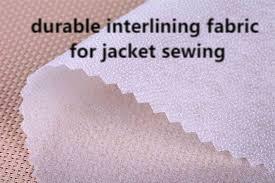In garment manufacturing, the role of Interlining is fundamental to achieving both durability and refined aesthetics. Choosing the appropriate Interlining enhances fabric stability, supports garment structure, and contributes to wearer comfort. As fashion trends evolve, the materials used for support layers must adapt, ensuring garments retain their intended shape while meeting modern performance and sustainability demands.
Strengthening Garment Integrity
Support fabrics provide essential reinforcement to critical areas such as collars, cuffs, and waistbands. By enhancing these zones, garments maintain their tailored appearance after repeated use and laundering. This internal stability prevents deformation, contributing to the longevity and overall quality of apparel.
Embracing Advanced Materials
Recent innovations introduce lightweight and flexible support layers that complement a wide range of textiles, from delicate silks to heavy outerwear. These materials allow designers to balance rigidity with comfort, accommodating stretch fabrics and breathable weaves. Furthermore, environmentally responsible fibers and adhesives are increasingly incorporated, reflecting growing industry focus on sustainability.
Custom Solutions for Diverse Applications
Garments vary greatly in their support needs depending on style and function. Customizing the thickness, stiffness, and adhesive strength of backing materials enables manufacturers to meet precise specifications. This versatility supports everything from casual wear to formal attire, ensuring garments perform as intended without compromising fabric aesthetics.
Ensuring Consistent Quality
Reliable performance requires rigorous testing protocols that evaluate adhesion, shrinkage resistance, and mechanical durability. Manufacturers invest in quality assurance processes to guarantee that each production batch meets exacting standards. This focus on quality reduces defects and supports brands in delivering superior products to market.
Sustainability Driving Industry Progress
The shift toward eco-conscious fashion encourages the adoption of recycled fibers and water-efficient manufacturing techniques. By minimizing environmental impact during production, textile suppliers help brands align with consumer expectations for responsible sourcing. Sustainable practices also contribute to regulatory compliance across global markets.
The strategic use of advanced support layers is essential for modern garment excellence. For more detailed information about types, applications, and benefits, visit https://www.interlining-factory.com/news/what-is-interlining-types-applications-and-more.html .



